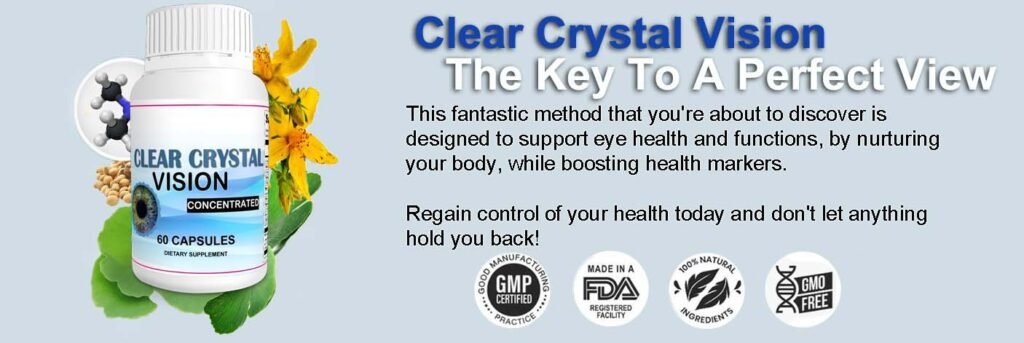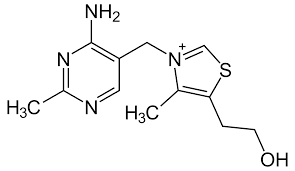Understanding Thiamin: The Vital B Vitamin
Thiamin, also known as Vitamin B1, is an essential water-soluble vitamin that plays a critical role in several metabolic processes within the body. This vital nutrient is involved primarily in the conversion of carbohydrates into energy, making it crucial for maintaining proper energy levels throughout the day. Thiamin serves as a coenzyme, aiding enzymatic reactions that facilitate the breakdown of glucose, which is the body’s primary fuel source. In addition to its energy-producing functions, thiamin contributes to the maintenance of normal nerve function, making it important for overall neurological health.
The human body does not store thiamin, necessitating a regular intake from dietary sources to meet daily requirements. Foods rich in thiamin include whole grains, legumes, seeds, nuts, and certain vegetables. Pork is also a significant source of this vitamin, thus incorporating a variety of these foods into one’s diet is vital for ensuring adequate thiamin levels. The recommended dietary allowance (RDA) for thiamin varies by age and gender, but for most adults, it is approximately 1.1 to 1.2 milligrams per day. Pregnant and breastfeeding women may require additional amounts to support fetal and infant development.
A deficiency in thiamin can lead to significant health issues, including a condition known as beriberi, which can manifest in two forms: wet, affecting the cardiovascular system, and dry, impacting the nervous system. Symptoms of thiamin deficiency may also include fatigue, irritability, reduced cognitive function, and muscle weakness. Additionally, individuals with chronic alcohol dependence may be at a heightened risk for thiamin deficiency due to poor dietary intake and impaired absorption. Understanding the importance of thiamin underscores its role in overall health, establishing a foundation for recognizing its specific benefits pertaining to vision.
Thiamin and Eye Health: The Connection Explained
Thiamin, also known as vitamin B1, plays a critical role in maintaining overall health, and its significance extends to eye health as well. The eyes require a constant supply of nutrients to function optimally, and thiamin is pivotal in facilitating various physiological processes that protect and enhance vision. A deficiency in thiamin can lead to several ocular problems, both directly and indirectly impacting visual acuity.
Research indicates that thiamin is essential in energy metabolism, which is crucial for sustaining the metabolic needs of the retina, a tissue highly sensitive to fluctuations in energy levels. The retina is responsible for converting light into neural signals, making it indispensable for vision. Thiamin contributes to the synthesis of ATP (adenosine triphosphate), the energy currency of the cell, ensuring that retinal cells have adequate energy for optimal function.
Moreover, studies have shown that individuals with low thiamin levels are at a higher risk of developing certain eye conditions such as cataracts and glaucoma. For example, a study published in a leading ophthalmology journal highlighted that increasing dietary thiamin intake could potentially reduce the risk of cataract formation by improving lens transparency. Similarly, another study pointed out that sufficient thiamin levels could mitigate oxidative stress in ocular tissues, which is often associated with aging and various eye diseases.
Furthermore, thiamin acts as an antioxidant, helping neutralize free radicals that can cause cellular damage in the eyes. This protective role is crucial, especially in preventing degenerative eye conditions linked to aging, such as macular degeneration. Therefore, ensuring an adequate intake of thiamin is vital for preserving eye health and potentially preventing vision-related issues in the long term.
Incorporating Thiamin into Your Diet for Better Vision
To enhance visual health, incorporating thiamin into your daily diet is essential. Thiamin, also known as vitamin B1, plays a crucial role in energy metabolism and neurological functions, both of which are vital for maintaining good eyesight. A variety of foods are excellent sources of thiamin, allowing for easy integration into daily meals. Some notable thiamin-rich foods include whole grains, legumes, nuts, seeds, pork, and fortified cereals.
For breakfast, consider starting your day with oatmeal topped with sliced almonds and berries. Whole grain toast served with avocado and a poached egg can also provide a satisfying and nutritious morning meal rich in thiamin. At lunchtime, a quinoa salad mixed with chickpeas, diced vegetables, and a lemon-tahini dressing makes for a wholesome option. For dinner, dishes like grilled pork tenderloin complemented by brown rice and steamed broccoli will not only nourish your body but also boost your thiamin intake.
When aiming for adequate thiamin consumption, planning is key. Incorporate a variety of thiamin sources throughout the week to maintain balanced nutrient levels. It’s essential to stay mindful of food preparation methods; for instance, boiling can cause a loss of thiamin in some foods. Opt for steaming or roasting as methods to retain more nutrients. Additionally, consider monitoring your food labels, particularly for processed items, to select those that are fortified with thiamin.
Be attentive to the symptoms of thiamin deficiency, which may include fatigue, irritability, and loss of appetite, as these can have broader implications on visual acuity. In instances of severe deficiency or when dietary adjustments are insufficient, it may be advisable to consult with a healthcare provider regarding supplementation options. Taking proactive steps in ensuring adequate thiamin intake can significantly contribute to improved vision and overall eye health.

Conclusion: Thiamin as a Key Nutrient for Vision Wellness
Throughout this discussion, we have explored the essential role of thiamin, also known as vitamin B1, in maintaining optimal vision health. Thiamin contributes significantly to various metabolic processes that not only support overall bodily function but are also crucial for preserving eye health. Deficiencies in this vital nutrient can lead to a range of health issues, including impairments in visual clarity and increased risk of ocular disorders.
One of the standout benefits of thiamin is its ability to protect against oxidative stress, which can damage the retina and other critical components of the eye. By working as a coenzyme in the body, thiamin aids in energy metabolism and ensures that visual cells receive the necessary energy to function properly. Adequate thiamin levels have been shown to support the optimal functioning of the nervous system, which is directly linked to visual acuity and processing. This connection underscores thiamin’s importance in preserving eye health and preventing deterioration over time.
Furthermore, thiamin’s role in enhancing visual clarity is a compelling reason for individuals to prioritize this key nutrient in their diets. Foods rich in thiamin, such as whole grains, legumes, nuts, and seeds, should be included regularly to meet daily nutritional requirements. Supplementing with thiamin might also be beneficial, especially for those at risk of insufficiency due to dietary habits or health conditions.
In conclusion, incorporating thiamin into our nutrition not only contributes to overall health but is also a proactive measure for ensuring long-term eye wellness. By recognizing the vital health benefits that thiamin provides for vision, individuals can take informed steps towards preserving their visual clarity and overall quality of life.

